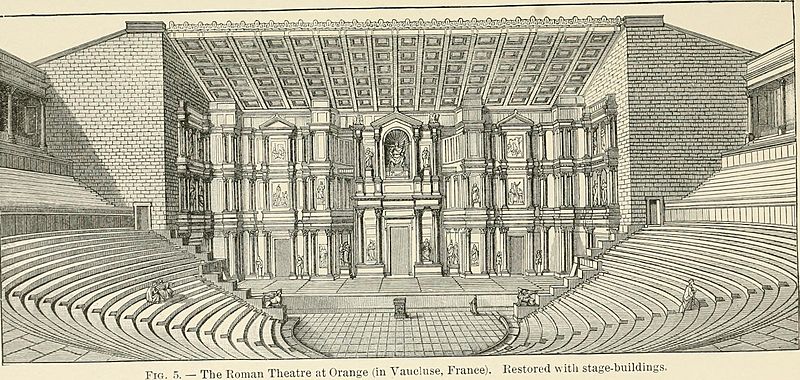Archivo: A history of all nations from the earliest times; being a universal historical library (1905) (14779334752)

Descripción: Identifier: historyofallnati05wrig (find matches) Title: A history of all nations from the earliest times; being a universal historical library Year: 1905 (1900s) Authors: Wright, John Henry, 1852-1908 Subjects: World history Publisher: (Philadelphia, New York : Lea Brothers & company Contributing Library: University of California Libraries Digitizing Sponsor: Internet Archive View Book Page: Book Viewer About This Book: Catalog Entry View All Images: All Images From Book Click here to view book online to see this illustration in context in a browseable online version of this book. Text Appearing Before Image: rd he lived in Rome and Naples. His Bucolics, which he pub-lished between b.c. 41 and 89, after the pattern of the Idylls of Theo-critus, express his thankful homage to his friends. The Georgics,B.c. 37-30, four books on agriculture, he dedicated to Maecenas. Atthe request of Augustus he began, in B.C. 29, a great epic poem, ofwhich the hero should be the legendary ancestor of the Romans and ofthe Julian house, the Trojan Aeneas. Virgil died September 22, B.c.19, at Brundisium. The Aeneid, to which he could not put thefinal touches, was regarded by the Romans, for brilliancy and dignityof language, and for elegance of composition, as a masterpiece. Apoet of a different kind was Quintus Horatius Flaccus (Horace), whowas born in Venusia, December 8, b.c. 65, the son of a freedman. Hereceived an excellent education, finished in the philosophical schools ofAthens ; and he fought as tribune under Marcus Brutus. Returningto Rome after the overthrow at Philippi, he secured a clerkship in the Text Appearing After Image: 43 44 THE PBINCIPATE OF AUGUSTUS. quaestors office, and began to make use of his poetical talent. Hisfriends introduced him, in B.c. 39, to Maecenas, who became his patronand friend. In b.c. 34 he received from liim an estate in the Sabinecountry, north of Tibur, which gave him independence. He died No-vember 27, B.c. 8, not long after the death of Maecenas. For Horacethe day of Philippi was a turning-point. The ideals of his youth weregone, and nothing remained for him but resignation. He reached theintelligent conviction that the principate was an unavoidable necessityand indeed a blessing for the Romans; and with good conscience hecould recommend to his contemporaries, in support of Augustus, thevirtues of simplicity and contentment, and the putting away of restlessambition and daring plans. His view of the world would appear veryegotistic, were it not tempered with tact and amiability. Moderationand freedom from stormy passion, — to be disturbed by nothing, to becontent with wha Note About Images Please note that these images are extracted from scanned page images that may have been digitally enhanced for readability - coloration and appearance of these illustrations may not perfectly resemble the original work.
Título: A history of all nations from the earliest times; being a universal historical library (1905) (14779334752)
Créditos: https://www.flickr.com/photos/internetarchivebookimages/14779334752/ Source book page: https://archive.org/stream/historyofallnati05wrig/historyofallnati05wrig#page/n48/mode/1up
Autor(a): Internet Archive Book Images
Permiso: At the time of upload, the image license was automatically confirmed using the Flickr API. For more information see Flickr API detail.
Términos de Uso: No known copyright restrictions
Licencia: No restrictions
Enlace de Licencia: https://www.flickr.com/commons/usage/
¿Se exige la atribución?: No
Usos del archivo
La siguiente página enlaza a este archivo:

